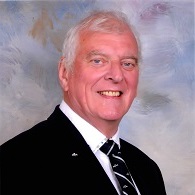-
QUALIFICATIONS
- For Linguists Worldwide
- For UK Public Services
- Preparation
- Policies & Regulation
-
MEMBERSHIP
- Join CIOL
- Professional Membership
- Affiliate Membership
- Chartered Linguist
- Already a member?
- Professional conduct
- Business & Corporate Partners
-
LANGUAGE ASSESSMENTS
- English
- All Other Languages
-
CPD & EVENTS
- Webinars & Events
- CIOL Conferences
- Networks
- CIOL Mentoring
-
NEWS & VOICES
- News & Voices
- CIOL eNews
- CIOL Awards
- The Linguist Magazine
- Jobs & Ads
-
RESOURCES
- For Translators & Interpreters
- For Universities & Students
- Standards & Norms
- CIOL & AI
- All Party Parliamentary Group
- In the UK
- UK Public Services
- Find-a-Linguist
Bringing membership to life: From management consultancy to language training Part 2
By John Barry Haywood
John Barry Haywood MCIL
English / French
Business owner of study abroad programmes
At the Eurolingua Institute in Montpellier, South of France, we offered group language courses for students and clients of all age ranges from 16 to 75+ years. Class numbers were limited to between 8 and 12 participants at the same language level, determined by an initial test of ability. Younger students would often be preparing for the national DELF or DALF examinations (diplomas awarded by the French Ministry of Education to prove the French-language skills of non-French candidates).
We soon realised that students in the 18 to 28 age range were looking for more than just superior language training. They also wanted real life work experience in France and the chance to earn some money. This led us to developing what became a very successful internship programme called ‘Stage en Hôtellerie’. We placed them in hotels for three reasons: hotel management wanted additional multilingual staff for 3 to 6 months during their busy May to October season; hotels can provide staff accommodation and meals; and they pay a monthly stipend, or pocket money. This suited our French language students who came from many different countries and were often already bilingual or trilingual. By the same token, students loved the ‘Stage en Hôtellerie’ programme because it gave them a small income, food and lodgings and a bona fide and structured French language course coordinated with their work experience schedule. Students came from far and wide - Australia, Canada and most parts of Europe. However, the two most significant nationalities were from West Africa and India – West Africa because the students already had some basic English and French, and India because they already spoke good English (a bonus in hotel work) and were learning French. These attributes were attractive to hotel managers.
Students, or in this context stagiaires, were assigned to jobs according to language level. Students with lower level French communication skills, perhaps these days categorised as A1/A2 on the Common European Framework of Reference for Languages (CEFR), were usually first assigned by their hotel manager to housekeeping duties (room cleaning and laundry), kitchen or gardening. More fluent French speakers, perhaps CEFR B1/B2, could be immediately assigned to roles involving more direct hotel customer contact (bar staff, waiters). Of course, everyone wanted to work on reception, as this was perceived as glamourous, but alas, few had the initial language level (CEFR C1/C2) for this coveted assignment. However, combined with intense French instruction at our language school, most made sufficient linguistic progress for advancement on their ‘stage’ (internship).
Overall, the Stage en Hôtellerie programme worked very well for students, as well as for teachers at the Eurolingua Institute in Montpellier and its hotel partners along the Mediterranean coast. Students of all nationalities made outstanding personal progress and benefited greatly from their lifetime experience of French language, life and culture.
Read part 1 here.
If you have a story you’d like to share, please email comms@ciol.org.uk
Want to know more about becoming a member? Click here.
More
The Chartered Institute of Linguists (CIOL), Incorporated by Royal Charter, Registered in England and Wales Number RC 000808 and the IoL Educational Trust (IoLET), trading as CIOL Qualifications, Company limited by Guarantee, Registered in England and Wales Number 04297497 and Registered Charity Number 1090263. CIOL is a not-for-profit organisation.









